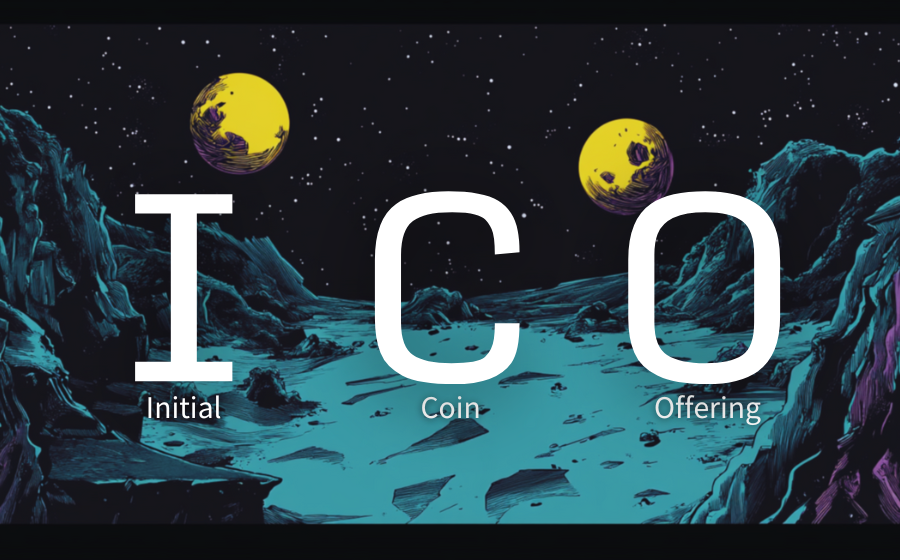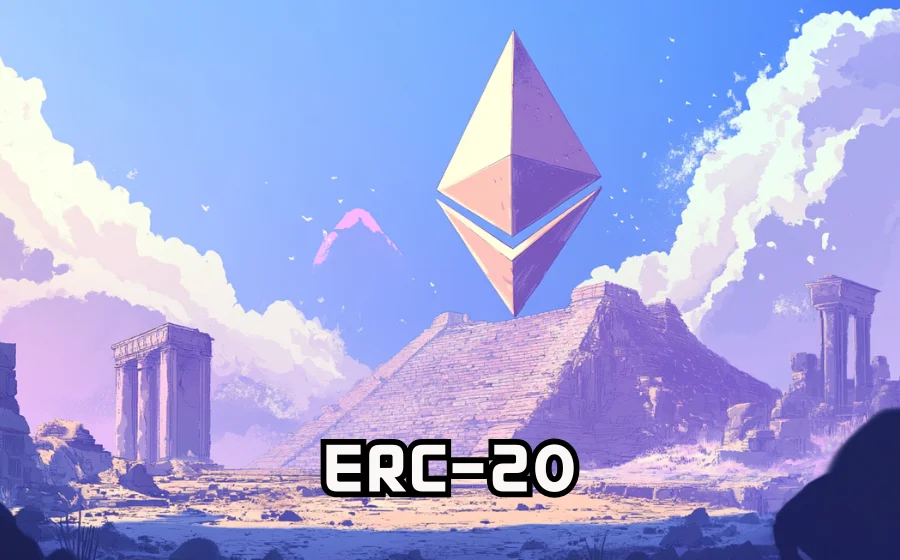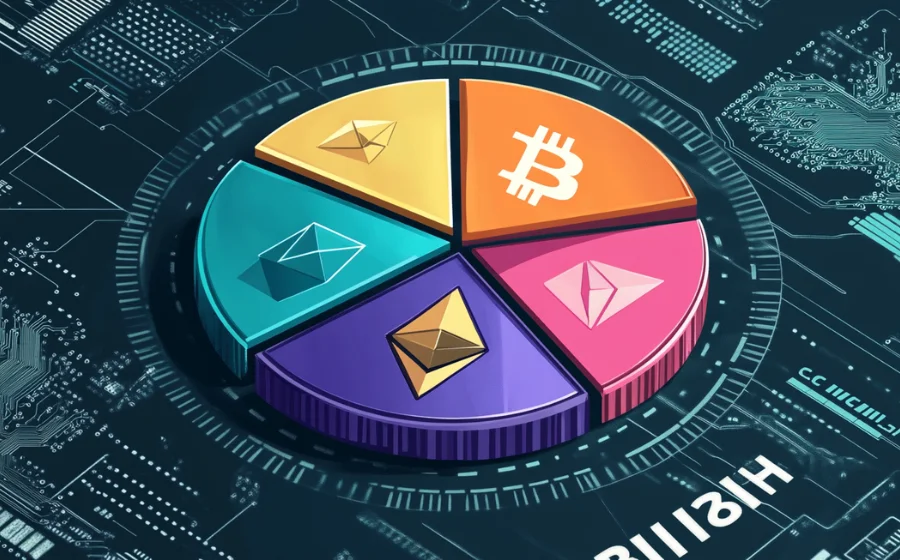
KEYTAKEAWAYS
- ICOs offer high rewards but come with significant risks due to low regulatory oversight and potential scams.
- Beginners should research project teams, read white papers, and verify legal compliance before investing in ICOs.
- Conducting third-party security audits helps identify trustworthy ICO projects and reduces investment risks.

CONTENT
Learn the fundamentals of ICOs and five key points to consider for beginners before investing, including team experience, legal risks, and third-party verification.
In recent years, Initial Coin Offerings (ICOs) have emerged as a popular fundraising method for blockchain startups, outshining traditional venture capital (VC) and crowdfunding models. Unlike Initial Public Offerings (IPOs) that require extensive documentation, ICO projects only need a white paper to outline their product concept and structure. By promising to share future profits with investors, they can secure initial funding for their projects.
A key feature of ICOs is their flexible fundraising approach. In addition to traditional fiat currencies, projects can accept well-known and credible cryptocurrencies like Bitcoin and Ethereum as investments. Many ICO projects have already delivered impressive returns, attracting a large number of users to invest.
However, for newcomers interested in investing in ICOs, it’s crucial to understand the nature of ICOs and how to evaluate project quality. Before investing, potential investors should thoroughly research:
- The specific mechanisms of how ICOs operate
- The background and capabilities of the project team
- The market potential and technical feasibility of the product
- The rationality of the token economic model
- The legal compliance of the project
By comprehensively understanding these elements, investors can better identify high-quality projects and reduce investment risks.
WHAT IS ICO?
ICO (Initial Coin Offering) is a fundraising method similar to IPO (Initial Public Offering). However, while an ICO issues cryptocurrency tokens, an IPO issues company stocks.
During an ICO, blockchain-based startups create and issue a certain number of native digital tokens, which are then sold to early investors, typically in exchange for well-known cryptocurrencies such as Bitcoin or Ethereum.
As a form of digital crowdfunding, ICOs offer dual advantages:
- For startups: They can raise funds without diluting equity.
- For investors: They have the opportunity to become part of an incentivized user community, aligning their interests with the project through token ownership, hoping for the project’s success to increase the value of their pre-purchased tokens.
ICOs provide blockchain entrepreneurs with a relatively simple financing mechanism and an innovative fundraising method. At the same time, token buyers may benefit in several ways:
- Gaining access to project-related services enabled by the tokens.
- Potential profits from token price appreciation if the project succeeds. These gains can be realized by selling tokens on exchanges.
- If confident in the project’s prospects, investors can increase their holdings once the tokens are officially circulating, further investing in the project.
While ICOs bring new opportunities for all parties involved, they also come with high risks and regulatory challenges. Investors should exercise caution when participating in ICOs, thoroughly understanding the project background, team capabilities, technical feasibility, and associated legal risks.
>>> More to read : APR vs APY in Crypto: What’s the Difference?

ICO VS IPO
Initial Public Offerings (IPOs) and Initial Coin Offerings (ICOs) are two distinctly different fundraising methods used in traditional financial markets and the emerging cryptocurrency sector, respectively. An IPO is the process by which a private company first offers shares to the public, while an ICO is a method for crypto projects to raise funds by issuing and selling digital tokens.
A common thread between these two financing methods is that they both attract investors who are optimistic about future growth. Whether buying stocks or tokens, investors expect the value to increase over time. However, ICOs and IPOs differ significantly in their nature and operation:
- Ownership and Value Representation:
★ IPO: Investors gain partial ownership of the company, potentially with rights to dividends and decision-making.
★ ICO: Tokens usually don’t represent ownership but function as utility units within the project’s ecosystem.
- Regulatory Oversight:
★ IPO: Subject to strict government regulation, such as scrutiny by the Securities and Exchange Commission (SEC).
★ ICO: Largely exists in a regulatory gray area, lacking unified standards.
The strict regulation of IPOs provides a degree of protection for investors, while the lack of regulation in ICOs increases investment risk. This difference is also reflected in the investor composition: IPOs typically attract more conservative investors seeking stable returns, while ICOs tend to draw investors willing to take on high risks and enthusiastic about new technologies.
The structure of ICOs can vary greatly between projects, stemming from the decentralized nature of crypto projects and regulatory uncertainties. In contrast, most IPOs have a relatively standardized structure. This difference also impacts the nature of the investment:
- Nature of Investment:
★ IPO: A more traditional investment based on the company’s financial status and business prospects.
★ ICO: Often likened to high-risk speculation, betting on the future potential of emerging technologies and concepts.
It’s worth noting that while ICOs are often compared to crowdfunding campaigns, there is a fundamental difference. Crowdfunding is typically based on a donation model where supporters don’t expect direct economic returns. ICO participants, however, hope to gain economic benefits through the appreciation of tokens, making it more akin to an investment, albeit a high-risk one.
Overall, both ICOs and IPOs provide avenues for enterprises to raise funds, but they cater to different types of projects and investors. The choice between participating in an ICO or an IPO depends on the investor’s risk tolerance, understanding of the relevant field, and judgment of future development trends. Regardless of the chosen method, investors should conduct thorough research and fully understand the associated risks and potential returns.
>>> More to read : How to Start Trading in Crypto: A Beginner’s Guide

ICO|5 KEY TIPS FOR BEGINNERS
Initial Coin Offerings (ICOs) have attracted numerous investors due to their potential for high returns. However, high returns often come with high risks. For novice investors, it’s crucial to assess the quality and feasibility of ICO projects. Here are five key steps to help beginners evaluate ICO projects:
1. Carefully Research the Project Team
Successful ICO projects typically have a development team that can clearly define their goals. Review the project’s white paper to ensure its content is easy to understand and the objectives are clear and specific. A good white paper should allow investors to easily grasp the core ideas and development direction of the project.
2. Assess Team Experience
It’s vital to delve into the background of the development team. Look for team members’ past experiences in successfully creating and operating businesses. Ideally, team members should publicize their social media accounts, which not only increases transparency but also facilitates further background checks and communication for investors.
3. Read the White Paper in Detail
The white paper is the core document for understanding an ICO project. It should elaborate on:
➢ Technical details of the project
➢ How the expected product or service will function
➢ The project’s development roadmap, including the timeline for launching key features
Carefully reading the white paper can help you judge the project’s feasibility and potential value.
4. Review Legal Terms
Given the current lack of unified regulatory standards in the ICO field, investors need to pay special attention to the project’s legal compliance. Carefully read the project’s legal terms to ensure they comply with relevant laws and regulations. If possible, seeking advice from legal professionals is also a wise move.
5. Seek Third-Party Verification
Security is paramount for ICO projects. Checking whether the project’s code has been audited by a third party is a good approach. If a project is willing to undergo independent security audits, it usually indicates that they take the security and reliability of the project seriously, which is a positive signal for investors.
>>> More to read : What Is MACD? How It Works in Crypto Trading
Evaluating ICO projects requires comprehensive consideration and in-depth research. Through the above five steps, novice investors can better judge the potential and risks of an ICO project. However, the inherent volatility of the crypto market means that even carefully evaluated projects may face risks. Therefore, it is always wise to remain vigilant and only invest what you can afford to lose.

RISK WARNINGS FOR ICO INVESTMENTS
Despite the potential for significant gains, investors must be fully aware of the high risks involved in ICO investments:
- Legal Risks: In some countries (such as South Korea and China), ICOs have been deemed illegal and completely banned. It’s essential to understand the legal regulations in your region before investing.
- Risks from Low Entry Barriers: Compared to IPOs, the threshold for launching an ICO is extremely low. Almost anyone with appropriate technical support can issue a new cryptocurrency. This has led to a market flooded with projects and “altcoins” of varying quality.
- Fraud Risks: The lack of effective regulation has made ICOs a breeding ground for scammers. Unscrupulous individuals might meticulously design seemingly legitimate ICO projects, only to abscond with the funds. Among all financing methods, ICOs might be one of the easiest channels to set up as a scam.
- Insufficient Regulation: The ICO market currently still lacks effective regulation. If an ICO project fails or is proven to be fraudulent, investors often have no protection.
- High Fraud Risk: Historical data and market observations indicate that the ICO market has been rife with fraudulent projects. Although market conditions and regulatory measures have improved in recent years, ICO investments are still considered a high-risk area. Investors should be aware that in the ICO market, false or exaggerated projects are not uncommon, and a significant proportion of projects may be designed to deceive investors.
Given these risks, any tokens sold through ICOs should be viewed as high-risk investments. Investors should conduct thorough due diligence before participating in any ICO and be prepared for the possibility of losing their entire investment. At the same time, it is advisable for investors to stay informed about legal and regulatory developments in this field to better protect their interests.
Learn more about crypto:
What Is RSI, and How Do You Use It in the Crypto Market?
How to Read Crypto Charts: A Beginner’s Guide to Market Analysis
Best Crypto Trading Course for Free in 2024


















